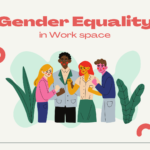Lieutenant General Nigar Johar Khan is the first and only woman in the history of Pakistan Army to reach the rank of lieutenant-general, and the third to reach the rank of major-general. Nigar Johar is a prominent officer in the Pakistan Army, distinguished for becoming the first woman to achieve the rank of lieutenant general.
Despite strides towards gender equality, women remain underrepresented in powerful and decision-making positions. Several factors contribute to this persistent disparity.
One key issue is societal norms and stereotypes that define leadership in masculine terms. From a young age, girls are often steered away from ambitions that lead to high-powered careers. This bias extends into the workplace, where women frequently encounter the “glass ceiling” – an invisible barrier preventing them from ascending to top roles.
Work-life balance is another significant challenge, as women often bear a disproportionate share of family responsibilities
Dieter Rams
Most users search for something interesting (or useful) and clickable; as soon as some promising candidates are found, users click. If the new page doesn’t meet users’ expectations, the back button is clicked and the search process is continued.
Moreover, organizational cultures can be inhospitable to women. Leadership styles and networking opportunities that favor men can marginalize women. Work-life balance is another significant challenge, as women often bear a disproportionate share of family responsibilities. This can hinder their career progression, as high-level positions typically demand long hours and extensive travel.
Implicit bias also plays a role. Studies have shown that men and women with identical qualifications are often judged differently, with men being viewed more favorably for leadership roles. Additionally, mentorship and sponsorship opportunities, which are crucial for career advancement, are less accessible to women.
Addressing these issues requires concerted efforts from both organizations and society. Promoting flexible work environments, challenging gender stereotypes, and ensuring equitable access to mentorship can help pave the way for more women to rise to powerful, decision-making positions.





